#oldest tree in paris
Explore tagged Tumblr posts
Text


Here's the oldest tree in Paris I guess.
2 notes
·
View notes
Text
Tired of Waiting

Anthony Bridgerton x fem!reader
summary: little pieces of your life as you fall in love with Anthony
cw: hurt/comfort
very loosely inspired by Love Story by Taylor Swift
Age 7
The first time you met Anthony, you had been playing hide and seek with your siblings. Your brothers had invited him to play and had declared that he be the seeker. Immediately, you had thought he was cute with his disheveled hair and outfit that was covered in dirt for reasons unknown to you.
He got along with your brothers quite nicely, but didn’t seem to pay you any mind. Almost as if he didn’t like you. And Anthony didn’t like you. He thought you were a know-it-all and didn’t like how you told him what to do.
You hid yourself in the tree above you and tried to hold back your giggles as you watched the boy and your brothers look for you, calling out your name as they did so. You let out a laugh that was a bit too loud and all four of them looked up, Anthony’s eyes going wide as he saw how high up you were. He thought it was very irresponsible of your brothers to let a girl such as yourself climb up there. But instead of helping, they all just laughed along with you.
Taking matters into his own hands, Anthony climbed up to help you despite your objection. You didn’t need his help. You got up there so you could certainly get down. And you certainly didn’t need help from a boy. Especially not one who was your not your brother.
“I do not require your help,” you told him, but he just ignored you, climbing the tree quicker than you ever could.
“No one said you didn’t require it, but I am offering.”
“Then I shall stay up here.” You crossed your arms over your chest, planting yourself down on the branch that you had been standing on. Thinking about letting him help you made you feel weak, like you couldn’t do it for yourself and you most certainly could.
You turned to face the setting sun as Anthony continued to climb to you, paying him no mind. You weren’t leaving that tree until he went away. He was not going to make you look like all of the other women. Because that was not what you were. You were just a girl trying to live out her freedom until it was time to discuss marriage.
Everyone stopped when there was a loud crack coming from below you. You sat up and sure enough, the branch was separating from the tree. Anthony finally reached the branch and him grabbing onto it made it completely break off, causing the both of you to fall to the ground in a loud thud.
He landed on top of you and made multiple apologies even though the fall hadn’t been that far, but you had hurt your knee, probably had even broken it. You screamed in response to the pain and your brothers quickly pulled him off of you and your oldest brother, Henry carried you inside to have your scraped knees taken care of. From that moment, you vowed that you would always hate Anthony Bridgerton.
Age 12
You got over your hatred for Anthony pretty quickly and the two of you had been attached at the hip ever since. You’d chase each other through the garden, threatening to kiss the other once you were caught, but that never actually happened. No matter how much you wanted it to. You knew it was wrong for a boy and a girl to kiss if they were not married, but that didn’t stop you from imagining what it would have been like to press a featherlight kiss to Anthony’s lips.
And Anthony felt just the same. He had realized that the feelings he had thought were hatred were actually of love. He had loved you and more than just a friend. He knew that he was young, but he wanted to marry you. So badly that it hurt. He vowed that as soon as the two of you were of age, he’d do it. If he had the guts.
Age 16
As you got older, you and Anthony talked much of traveling the world together. You’d go to Spain and Paris, and Italy and wherever else your hearts desired. You’d both sit in the study of your house and spin your globe for hours, closing your eyes and spinning the thing and deciding you’d had whatever it landed on to your ever-growing itinerary.
Not long after, Anthony told you that he would be traveling with his uncle through Europe. Coincidentally to the exact places you both had discussed going to. You had been a little upset, but ultimately felt elated for him to be able to do something so exciting. He promised that he would write and bring something back, but that didn’t seem like enough. You had spent every single day for the past nine years together and now you were going to be miles apart with only his letters and gifts to keep your company.
The next week, you saw Anthony off, giving him a hug that lasted a little too long for friends and stayed there until his carriage disappeared down the road. You felt tears fall from your eyes but wiped them away until you were alone.
You knew it was only going to be for a few weeks, but without Anthony, a part of you was missing. A piece of your heart had left with him and you were hoping, praying that he’d finally get the hint and come back and ask for your hand like you had been wanting for years. But he didn’t.
Age 20
Those few weeks had turned into months which eventually turned into years. Anthony had been gone for four years and you eventually threw away the letters he was sending you, knowing that everything he had said was a load of shit. He has promised to come back and marry you, but clearly that hadn’t been of importance since he had yet to do just that.
So, with that, you decided that it was finally your season to find a husband to which your mother reluctantly agreed. She had her heart set on you ending up with Anthony, but since he had failed to propose, she decided that it was probably for the best to just get on with it.
As soon as you had been declared ready to wed, suitors lined up at your door with gifts and many compliments which you took with a smile. All of them were gentleman, but none of them seemed right. The onto one you wanted was out of reach.
You found yourself at yet another ball to meet more suitors that you had forced yourself to go despite your want to stay home and read Anthony’s letters over and over again. You had been dancing with the man your mother had insisted was the right fit for you and no matter how nice he was, you had decided that he was a bore. All he seemed to want to talk about was his family and as nice as it was that he loved them so much, you could only hear about his six siblings for so long.
You looked around the room as he spoke and your eyes locked on a beautiful man by the refreshments table. He has the prettiest brown eyes and hair that was the perfect amount of messy. He was definitely your type and you had been determined to talk to him.
Once the song ended, you excused yourself from Edgar and made a beeline for the man that has caught your interest. His eyes locked on yours and for some reason, they seemed familiar, almost as if you had looked into them before. He gave you a smile and you swore your legs were going to give out at how pretty it was.
“Hello,” you greeted him with a curtsy. “I’m-”
“Lady l/n,” he finished, taking your gloved hand and pressing a kiss to it. How could he have possibly known your name? Unless- No, he was in Paris last you had heard.
“Anthony?” You asked and he just smiled. It really was him! In the flesh! How had he come back and not told you? Perhaps the announcement had been in the letters you had failed to open.
“I believe you should address me as Viscount Bridgerton,” he said, his lips right by your ear, causing you to shiver.
“That would mean that I respect you and at this moment, I don’t.” You pulled your hand from his and headed out of the ballroom, down to the courtyard.
Anthony took off after you, quickly gaining up on you. What had he done wrong? Once upon a time, you worshipped the ground that he walked on and now you were treating him like he was dog shit you had just stepped in.
He told you he was going to come back and marry you and now that he had, you didn’t want anything to do with him. He knew that he had been gone longer than intended, but he had hoped you still would have been happy to see him. Apparently, he was wrong.
Anthony followed you into the hedge maze that took up most of the courtyard and was having trouble keeping up since you had sped up into a run. What even was the purpose of a hedge maze?
He eventually caught you by the wrist and you tried to wriggle out of his grasp, but it was no use. You were tired of running, but you were also tired of waiting. If you said the word, you’d be wed to Edgar within a month and Anthony would have been kicking himself because he hadn’t gotten there sooner. It was what he had deserved.
“Stop running,” he commanded through labored breaths and you just shook your head.
“No,” you replied. “I will not. I am so upset with you that I can’t even comprehend it.”
“Upset with me?” He still had no idea what he had done.
“Yes!” You looked so upset and exhausted that all Anthony wanted to do was hold you in his arms as a way to comfort you.
“Why?”
“Why? Be serious, Anthony! I have waited years for you and I shall not wait any longer. I am done with you.” That was like a stab to the heart. You should have just killed him. It would have hurt a lot less
“Done?” You couldn’t be done with him. You had spent too much time together for that to be true.
“I am to marry Lord Fletcher.” Fuck, he was too late.
“That man is a bore!” You had no interest in hearing his thoughts. He lost his privilege to tell you what he thought when he left.
“He is no such thing!” He really was, but you weren’t going to give Anthony the satisfaction of being right.
“And may I say old enough to be your father.” He was that too, but you weren’t really going to marry him so it didn’t matter.
“But he will be my husband. A role you could have taken on if you had bothered to show up.” With that, he he let go of your hand and watched you move further into the maze.
“But he doesn’t love you as much as I!” He yelled, loud enough for you to hear. You quickly turned around and marched towards him and grabbed him by his coat before pressing your lips to his. You felt him gasp into your mouth but he quickly melted into you, his lips moving with yours.
“You love me,” you said against his lips.
“More than you’ll ever know.” He pulled away and reached into his pocket for the ring he had bought for you in Paris. He opened the box you gasped at the beautiful ring sitting inside it.
“Anthony, it’s beautiful.”
“And it’s yours.” He removed the ring from the box and slid it onto your finger, tears welling up in both of your eyes. “It always was.”
“I’m sorry. I was horrible to you.”
“No apologies necessary,” he shook his head, pulling you into another deep kiss. “Now, shall we go make the announcement?” He asked, offering you his arm.
“We shall,” you nodded and looped your arm through his, the two of you making your way back into the ballroom to announce your much anticipated engagement.
#bridgerton#anthony bridgerton#anthony bridgerton x reader#anthony bridgerton x you#anthony bridgerton smut#anthony bridgeton fluff
2K notes
·
View notes
Text
The Iliou Katabasein
As recorded by Lykaon of Polias Iroikos, historian and singer of truth, who wrote in the reign of High Seer Amynthor and under the auspices of the Temple of Loyalty, where Perselena is honored as Defender of Heroes.
I. THE BEGINNING OF STRIFE
O Muse, voice of remembrance, sing of Ilium’s fall, of bright-helmed men and loyal women, of the wrath that sparked a war and the love that drowned it.
Sing of Eris, she who is born in the silence after peace. She who was unbidden to the wedding of Peleus and Thetis. Enraged, she cast among the gods a golden apple—marked, simply: To the Fairest.
Queen Hera claimed it by right of sovereignty.
Bright-eyed Athena, for her wisdom.
Golden Aphrodite, for her unmatched beauty.
None would yield.
So they turned to Paris Alexandros, son of Priam, herdsman of Ida, mortal prince and judge of goddesses. They came veiled in majesty, and each tempted him:
Hera with dominion over lands,
Athena with victory in all war,
Aphrodite with the love of Helen, fairest of mortal women.
And so Paris gave the apple to Love.
II. OF HELEN AND THE BROTHERS OF SPARTA
Helen, daughter of Leda and Zeus, had once been kidnapped by Theseus, but was saved by her brothers Castor and Polydeuces, with aid from the goddess Perselena. She had stayed with Penelope and the goddess in Iroikos, and there learned truth and diplomacy.
Later, in the halls of Sparta, she married Menelaus, son of Atreus. But when Paris came with words of longing and a god-fired arrow in her heart, she left—willingly, yet bound by enchantment.
Before departing, she left Menelaus a letter: I am not myself. The goddess has promised me to another. I go because I must, not because I forget you. And so she sailed to Troy.
III. THE OATHS OF HEROES
Long before, Odysseus of Ithaca had feared bloodshed over Helen. Advised by his sister-in-bond, Perselena, he’d proposed the Oath of Tyndareus: that all suitors would defend Helen’s chosen husband. And so they came.
Agamemnon of Mycenae, high king.
Odysseus, born of Anticlea the hunter and Laertes, son of Zeus and Hermes’ line.
Nestor of Pylos, oldest in counsel.
Ajax the Great, boulder-shouldered.
Diomedes of Argos, lion-hearted.
And finally, Achilles, youngest and brightest, born of Thetis and Peleus.
IV. THE FINDING OF ACHILLES
Thetis, fearing his death, hid Achilles on Skyros, dressed as a maiden. Odysseus, ever cunning, came with gifts—swords among jewels, tales of war and heroism, dancers, and riddles. Still, he failed to catch Achilles unawares.
In the end, it was Patroclus who called him.
Achilles, I go. I leave for Troy.
Achilles revealed himself and embraced his fate. He and Patroclus wed beneath an olive tree. Perselena, favorite cousin and officiant, blessed their bond with words of loyalty and resilience. The wedding was small, but the fates themselves bore witness.
V. THE DECADE OF BLOOD
O Muse, veil thy face. Speak now of siege and slaughter.
The Greeks landed on Trojan shores. For ten years, they fought. No quarter was given, yet rules were kept: no child under ten was killed. Each year, the kings met to exchange prisoners, to count the fallen, to bury their dead with rites.
Achilles was terrible as fire. Patroclus, no less brave, led men as a true general. Odysseus, wise in tongue and steel, plotted with Athena and Perselena. Diomedes raged with divine madness, and Aeneas of Troy stood against him with the aid of his mother Aphrodite.
And above them all stood Hector, breaker of men.
VI. THE DEATHS THAT BROKE THE EARTH
Patroclus died in single combat against Hector, fighting in his own armor, his name unmasked. The Trojans mourned the killing, for he had spared many.
Achilles saw his body borne back and did not weep—he howled. He found Hector, broke both his arms, sealed him in a bronze coffin, and left it before Troy’s gates.
Hector died of suffocation.
Only later was the coffin opened and the funeral held.
Then came the gods’ judgment. Apollo, seeing Hector unavenged, guided Paris’s hand. An arrow flew—not even aimed—and struck Achilles in his heel. The river Styx knew him no longer.
VII. THE HORSE AND THE FALL
Odysseus, struck by grief, devised the end.
A great wooden horse, left as an offering. Within, the finest warriors: Odysseus, Menelaus, Ajax, Diomedes.
At night, they opened Troy’s gates.
Helen, released from enchantment at the moment Paris fired the fatal arrow, saw clearly. She turned her blade against the man who'd torn her from herself. Paris died bleeding at her feet.
VIII. THE MERCIES OF GODS
In the burning city, Andromache and Astyanax were found by bloodied Greeks. She cried out not to Aphrodite or Apollo but to Perselena—goddess of loyalty, of protection.
In answer, the goddess turned them into white albatrosses, and they flew beyond the flames.
IX. THE HOMEWARD TIDE
Odysseus set sail. Yet storms and trials caught him in the Sea of Monsters. He did not anger Poseidon—for he never named himself to Polyphemus—but he was trapped by Calypso.
Three years passed in her spell. Then it broke. He carved a boat, found his crew, and sailed home.
Penelope still waited, with axe and loom and hope.
He returned. He saw the olive-wood bed Perselena had gifted them. He wept. He killed the suitors.
He was home.
X. EPILOGUE OF THE GODS
Ares and Perselena stood on opposite sides of war—he with Troy for Aphrodite’s sake, she with Greece for loyalty’s sake. He asked once, quietly: Do you need me?
She shook her head.
And so they fought, husband and wife, across fields soaked in honor and ash.
And so fell Troy, and so rose the age of men.
O Muse, remember them. The brave. The lost. The loyal. For their names still live where glory does not fade.
#athenide au#perse athenide#perselena athenide's impact#just putting this out there#Perselena Athenide
50 notes
·
View notes
Text
Tristin Dugray lore hcs
wc: 1k
warnings: mentions of broken/dysfunctional families, tristin's siblings both have drug problems, mentions of sexism and abortion (v briefly), mentions of cheating (also v briefly), tristin is not super close with his siblings, brief mention of DUIs (not tristin), I think that's it??
summary: lore on Tristin's family whipped up in my little plastic play kitchen by yours truly lol
a/n: I MISS HIM!!!! I SAW SOME GIFS THAT MADE ME SALIVATE!!!!! also!! in case it wasn't obvious the Dugray family is based on the real life Dupont family, just like how the Huntzbergers are based on the Sulzbergers
song recs: family jewels - Marina (ouch!), be here - palaye royale, everything is romantic - charli xcx

The Dugray family have made their fortune as far back as the American revolution, starting with immigrating to America and manufacturing gunpowder for the American soldiers
This eventually led to the Dugray family owning one of the largest and most established chemical manufacturing corporations in America, DuGray
They invented a number of household names like pyrex, teflon, styrofoam, and even superglue, and also make ppe for people who work with or around chemicals
A while back, they also acquired two bank chains on the east coast, one of which is for east coast businesses, and the other is expanding slowly across america.
The Dugray family’s net worth is roughly 18.6 billion. I know.
Also, the Huntzberger family’s net worth is roughly 21.7 billion. I know.
Tristin mentions at one point that he has a “matching set” of baggage with Paris, and we know Paris’s parents are not at all close to her, or each other
We also know that her father is the head of a pharmaceutical company, and when her parents divorced it was in the newspaper
So yikes!
Anyway the only family mentioned by name is Janlon Dugrey, his paternal grandfather (I’m assuming if Janlon was his mom’s dad he would have a different last name yk)
So OBVIOUSLY I had to flesh things out a little
Looking at this family tree I made a while ago, Tristin has two older siblings: his oldest brother Royce, and his older sister and middle sibling Sutton
They’re both a bit older than Tristin, since his mom is their dad’s second wife
Truett DuGrey married Helena Holshire and had Royce, then Sutton
They divorced when Royce was around 7 and Sutton was almost 5 because Helena suspected Truett of cheating, and Truett suspected Helena of being a gold digger
Both were true
A couple years later, Truett is introduced to Blythe Ross while working on publicity for the banks his family as acquired
Blythe and Truett didn’t necessarily get along, but she could handle him better than most other women he’s met
They were actually introduced through Mitchum Huntzberger and his wife Shira, because Shira and Blythe are sisters
Surprise!
So Blythe gets pregnant and Truett can feel another Helena gold digger situation coming
That’s when Blythe tells him she can’t go to his work event because she has to go to a clinic
Truett stops in his tracks and realizes three things at the same time
Blythe is not in fact using a pregnancy to try and get access to his money
He loves his son Royce as much as he’s able to, but he’s already becoming apathetic and Truett can’t pass over the family business to someone with no drive or ambition
Royce is 10 by the way
Lastly, he realizes that this might actually be beneficial to him
So he convinces Blythe not to get an abortion and to elope instead
Once she gets her body back after the baby they’ll stage some wedding photos and claim it was from a little over a year ago so no one knows he had the baby out of wedlock
When she’s 18 weeks along, he schedules a private ultrasound to find out the baby’s gender
He tells her that if it’s a boy, everything will be fine
If it’s a girl, he’ll serve her annulment papers and nice fat alimony and child support checks to keep both of them out of his life
Blythe isn’t sure if she’s relieved or not when the doctors announce they’re going to be having a healthy baby boy, but Truett sure is
So he grows up watching his burnt out older brother and back bone of the family older sister navigate middle school and high school when he’s barely starting kindergarten
They don’t have any harsh feelings toward Tristin
Not really
They were just never that close yk
It’s like the pilot of umbrella academy, “we only see each other at weddings and funerals”
Except really, they only see each other when Truett forces them into whatever is going on with the family business, or to bail each other out of trouble
Royce is just waiting for his trust fund to kick in so he can fuck off and smoke weed in peace
Sutton is desperately trying to keep her image and life together while hiding her nicotine dependency and steadily growing pill problem from the public eye
And Tristin just wants to fucking feel something
His mom has been in and out of “med spas” and “wellness retreats” for so long he wouldn’t be surprised if she didn’t recognize him, and the only time he and his dad talk is when he’s making charges go away
Sutton is engaged to this guy Clint
And he’s fine or whatever, Tristin hasn’t really talked to him much before
But he’s keeping his ear to the ground to make sure he treats his sister right
Sure Sutton can be condescending and a total control freak and act more like a mom than his actual mom
But she’s still his sister
So Sutton’s been off planning this huge wedding and trying to start some lifestyle brand for luxury dog beds and organic phone cases or something
Royce barely managed to keep his latest DUI for driving stoned under wraps but Truett still found out and sent him off to rehab
So Tristin starts high school at Chilton feeling almost lonelier than ever
Tristin aches for consistency, for stability
Thanks to Duncan and Bowman he sort of has that
And people like Paris that he’s literally been in school with since he can remember
It’s not that they’re particularly close, but he just likes that she’s always around when he’s going to and from class
There’s a few other people like that too, loose acquaintances that haven’t dropped out or transferred
They make him feel like even if everything else has gone to shit, he still has his winning personality
And he still has Chilton
#tristin dugray#tristin dugray x reader#trisin dugray headcanons#gilmore girls#gilmore girls x reader#gilmore girls headcanons#I WANT HIM SO MOTHERFUCKING BADDDDDDD#still cannot get over that he was supposed to have logan's place in the later seasons#this is no offense to you logan I LOVE logan#BUT JESUS MOTHERFUCKING CHRIST WE WERE ROBBED
62 notes
·
View notes
Text

Ona Simaite was a Lithuanian librarian who saved Jews including many children during the German occupation, and preserved literary works from the Vilna ghetto before being arrested by the Gestapo.
Born in Akmene, Lithuania in 1894, Ona was educated in Moscow and began working at the library at Vilnius university in 1940. A book lover and intellectual, Ona was excited to be working at the oldest university in northern Europe, in a city teeming with culture. However everything changed in 1941, when the Nazis invaded Lithuania. Immediately they created a squalid ghetto and imprisoned the city’s large Jewish population. Ona was shocked and horrified when her Jewish students and colleagues suddenly disappeared.
Without a moment of doubt, she began visiting the ghetto frequently, under the pretext of collecting library books. She was shocked at what she saw there. It was hell on earth. Residents were barely alive, many of them starving to death, while others were shot in the streets, or beaten brutally and then sent to concentration camps. Ona spent the rest of the war helping Lithuanian Jews in multiple ways. In her visits to the ghetto, she smuggled food, medicine, supplies, and small firearms. After each visit, she left with documents: letters from ghetto residents to their loved ones, literary journals describing life in the ghetto, and various other important papers.
Ona helped Jews who managed to escape or avoid the ghetto by sheltering them in her own humble apartment, and when she ran out of room she found other hiding places for them. She procured fake documents enabling them to hide their Jewish identity. Saving Jews from the Nazis became the focus of her entire life. With superhuman strength and courage, she smuggled small children out of the ghetto in her big book sack, and found homes for them with people who would keep them hidden and safe. It is unknown exactly how many this mild-mannered librarian saved, because she spoke to no one about her heroic acts.
In 1944, Ona was arrested by officers of the Gestapo, the notorious German secret police. She was brutally tortured by the sadistic Nazis, and sentenced to death. Miraculously, right before her scheduled execution, the president of Vinius University found out about it and paid a large ransom for her life. The Nazis agreed not to kill her, but they refused to free her, and instead sent to the Dachau concentration camp, and later an internment camp in France. Ona was finally freed when the Allies liberated France in 1945.
After the war, Ona remained in Paris, living a quiet life as a librarian, in a home full of books. She was honored as Righteous Among the Nations by Israeli Holocaust Memorial Yad Vashem in 1966, and a tree was planted in her honor. Ona died in 1970, leaving behind a trove of her own writing: letters, journals, articles, and diaries. Many of them were published in the book “Epistophilia: Writing the Life of Ona Simaite.” In 2015, Simaite Street in Vilna was named after her.
For saving an unknown number of Jews, in a multitude of ways, over four years, we honor Ona Simaite as this week’s Thursday Hero.
108 notes
·
View notes
Text
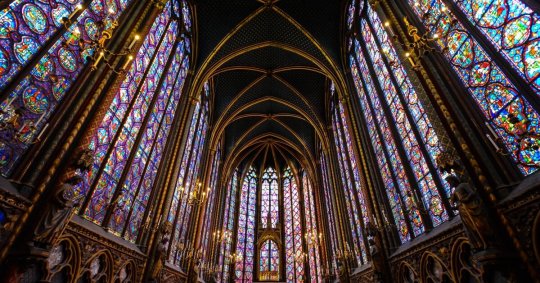



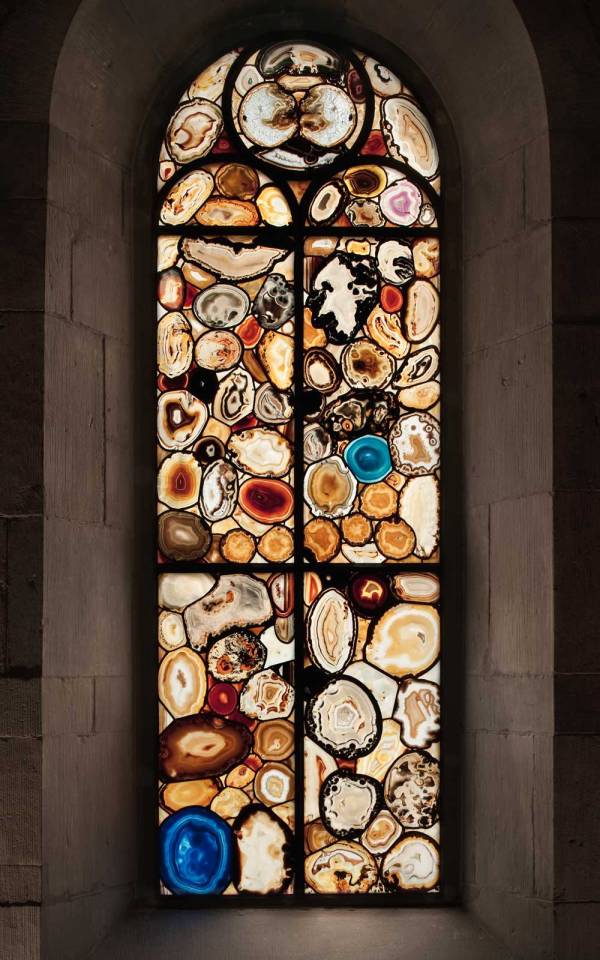

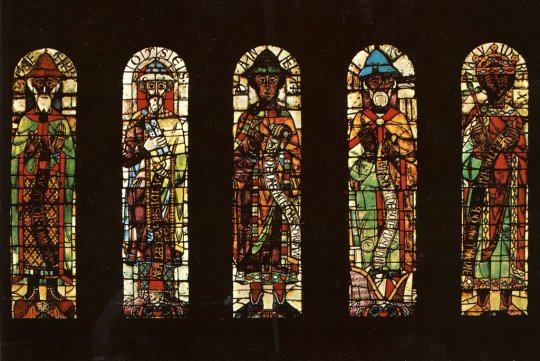
stained glass windows I can't get enough of.
1/ Sainte-Chapelle, Paris
The stained glass windows in Sainte-Chapelle form a drenched masterpiece of stained glass with 15 immense bays of vibrant colors and intricate biblical scenes. These 13th-century windows document the scenes of the Bible, from Creation to Apocalypse.
2/ Cologne Cathedral, Germany:
The stained glass windows of Cologne Cathedral were done in a number of periods, such as the 14th and 16th centuries, when some windows, including the St. Peter window and the Tree of Jesse Window, date from 1509. The design for the window of the south transept of the cathedral was done by Gerhard Richter, finished in 2007, with 11,263 glass squares in 72 colors.
3/ Canterbury Cathedral, England:
The stained glass of Canterbury Cathedral dates back to the 12th century, with some panels thought to be among the oldest in the world. In fact, the oldest glass within the building is over 840 years old, showing biblical figures and their genealogies. A range of the Ancestors of Christ series, dating from the mid-1100s, possibly constitutes the oldest surviving stained glass windows in England.
4/ Santurio Dom Bosco, Brazil
The stained glass of Santuário Dom Bosco in Brasilia was designed by architect Cláudio Naves with Hubert Van Doorne in the 1960s, it contains giant walls in stained blue glass with rosé glass at each corner, creating a really dramatic interior illumination.
5/ Grossmunster Zurich, Germany
The stained glass windows of Grossmünster Zurich were designed by Sigmar Polke and installed in 2009. The windows feature seven windows in the nave made from agate, which were cut into thin slices through which light was passed to create a brightly glowing effect. Five further figurative windows, depicting Old Testament figures leading towards the chancel window created by Augusto Giacometti in 1933.
6/ Metropolitan Cathedral of St. Sebastian, Brazil
The stained glass windows of the Metropolitan Cathedral of St. Sebastian were designed in an intricate symbolism in the city of Rio de Janeiro. The windows, from the 1960s, stand as a symbol of the unity, sanctity, mission, and hierarchy of the Catholic Church. They are part of the unique architecture that boasts a Greek cross and a round base drawing inspiration from Mayan pyramids to mean closeness to God.
7/ Augsburg Cathedral, Germany
The oldest of these stained glass windows are found in Augsburg Cathedral and date back to approximately 1065. Five Old Testament figures—Moses, David, Daniel, Hosea, and Jonah—are depicted in the Prophet Windows of the nave in monumental Romanesque style. Biblical scenes and stories of the Virgin also appear in later medieval windows.
#stained glass#cathedrals#sainte chapelle#cologne cathedral#canterbury cathedral#santurio dom bosco#grossmunster zurich#Brazil#metropolitan cathedral of st Sebastian#Augsburg Cathedral
65 notes
·
View notes
Text
your oldest friend (your closest lover)
(the crossdressing fic you didn't know you needed)
Paris is almost beautiful at that time of the year.
Spring has come and settled, painting the boulevards green, lending the city a fresh breath of life after what had been a very grey, very muddy winter. Birds are singing in the trees, the breeze is soft and balmy; the sun has just started painting the edges of the roofs gold, and Daniel feels warm and content.
Armand is pressed against his side, their arms interlocked as they walk. He's silent for once but seems happy when Daniel glances towards him - peaceful, in a way he rarely gets to witness. The night had been full of noises and sights, of smells and touches; they had descended upon the Marais early the previous evening and danced the night away with the carelessness of two young people that felt invincible. Armand hadn't fed - not on Daniel, nor on some other unsuspecting party-goer. Daniel would almost be disappointed if he didn't still feel the pleasant burn of the hickey his companion had left on the side of his neck every time he brushed against that spot.
Armand chuckles, satisfied and a little bit smug, and Daniel realizes he's distractedly pressing against the bruise as he thinks about the previous night.
“What?” he asks, his mouth curling around a smile.
“Just thinking about the look on that man's face as he watched me mark you,” Armand answers like he's talking about the weather. “He looked like he wanted to eat you. But you're all mine,” he adds with a flash of teeth. “Aren't you?”
Daniel swallows thickly when the memory - not all his, as he was fairly distracted during the events - takes shape in his mind. A man in his forties, holding a glass he's clearly forgotten about as he watches Armand suck and nibble at Daniel's jugular; his eyes are unabashedly fixed on them, his thoughts are loud. So are his desires - he wants Daniel, wants him on his knees, wants him beneath him. Armand pulls away to glare at the man, and Daniel's moan of protest at the loss is lost in the thumping beats of the music.
Armand comes back with a vengeance, biting down with blunt teeth and sucking like he's attempting to pull Daniel's blood to him through sheer willpower.
Daniel comes back to the present with a shaky breath. “All yours, boss,” he answers a bit feebly.
Armand smiles and stops in his tracks, pulling Daniel into a kiss. After a moment of hesitation, Daniel falls into it.
“You still aren't comfortable with physical displays of affection,” Armand remarks against his lips.
Daniel sighs. “It's not that. It's -” - that we're both men, he finishes in his head. He cannot bring himself to say it, to confess his shameful cowardice, but of course Armand hears it all the same.
The vampire's face clears of emotions, and he pulls away.
“Boss,” Daniel says - pleads. “Babe.” He catches Armand's fingers before he can fully step away, wraps them between his hands. “You gotta understand. It's just - I'm a bit jumpy, okay? Paris isn't bad as far as homophobia goes, but the States…” he hesitates. He's heard enough stories about murdered gay men to be on his guard.
His concerns must be clear to Armand, because the man's expression softens into something sad, regretful.
“Do you wish I were a woman?”
[read more on AO3]
35 notes
·
View notes
Text
Van Helsing's misinformation
I took a look at some of the claims Van Helsing makes in his "immortal parrots" speech on the 26th of September.
Why was it that Methuselah lived nine hundred years, and 'Old Parr' one hundred and sixty-nine...
The oldest authenticated age that anyone has ever reached is 122 years (Jeanne Louise Calment, 1875-1997). Thomas Parr ('Old Parr') allegedly lived from 1483 to 1635 (which is 152 years, not 169) but the 1895 Dictionary of National Biography, which has an entry for Parr, is very sceptical about his claim, noting that his exact age was "attested by village gossip alone."
Here's Old Parr, painted by an unknown artist:
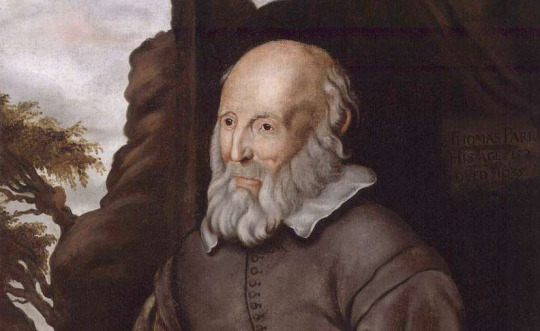
Do you know the altogether of comparative anatomy and can say wherefore the qualities of brutes are in some men, and not in others?
Comparative anatomy is a perfectly reasonable field, but coupled with "the qualities of brutes" and it being the 1890s, I strongly suspect this is some racist physiognomy bullshit (see p550 here for an example of how this looked in contemporary writing, if you must).
Can you tell me why, when other spiders die small and soon, that one great spider lived for centuries in the tower of the old Spanish church and grew and grew, till, on descending, he could drink the oil of all the church lamps?
This one is delightfully weird. It seems to be a telephone-game version of this story, printed in a variety of magazines and miscellanies (e.g.) since 1821:
The sexton of the church of St Eustace, at Paris, amazed to find frequently a particular lamp extinct early, and yet the oil consumed oil, sat up several nights to perceive the cause. At length he discovered that a spider of surprising size came down the cord to drink the oil. A still more extraordinary instance of the same kind occurred during the year 1751, in the Cathedral of Milan. A vast spider was observed there, which fed on the oil of the lamps... It weighed four pounds, and was sent to the Emperor of Austria, and is now in the Imperial Museum at Vienna.
Here's a photo of St Eustache:
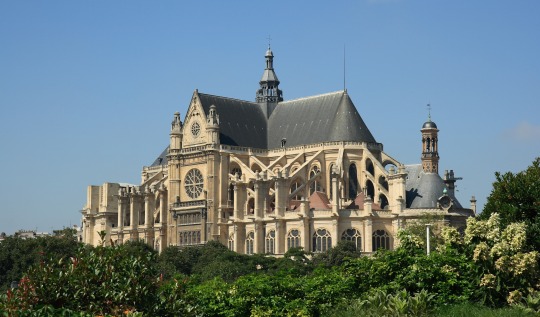
In 1894 the story was reprinted in Notes and Queries, with the question: "Are the statements therein pure fiction? If not, can any one tell me how much we may safely believe? A spider weighing four pounds [1.8kg] is indeed a heavy tax on the reader's credulity."
In reality, the largest spider in the world is the Goliath birdeater, which weighs 175g.
Can you tell me why in the Pampas, ay and elsewhere, there are bats that come at night and open the veins of cattle and horses and suck dry their veins...
Vampire bats are real, and live in parts of South and Central America. The prey of the common vampire bat can include cattle (source). The quantity of blood that they drink is small - in the region of 100g, or about a fifth of a typical blood donation. Vampire bat predation can result in the death of much larger animals, but from infection, not draining them dry.
Here's a common vampire bat:

... how in some islands of the Western seas there are bats which hang on the trees all day, and those who have seen describe as like giant nuts or pods, and that when the sailors sleep on the deck, because that it is hot, flit down on them, and then—and then in the morning are found dead men, white as even Miss Lucy was?
From Wikipedia:
West Sea or Western Sea may refer to:
Atlantic Ocean
Pacific Ocean
Indian Ocean
Mediterranean Sea...
So that's not the most helpful starting point. I don't know which bats these are supposed to be, though hanging in trees like giant nuts makes them sound like fruit bats. In Van Helsing's defence, bats do carry a lot of viruses.
Can you tell me why the tortoise lives more long than generations of men...
Lovely to reach something that's just straight-up true. The current oldest living land animal is Jonathan, a 190+-year-old Seychelles giant tortoise.

... why the elephant goes on and on till he have seen dynasties...
Asian elephants live to be 50 or so; African elephants, 60-70 years. Weirdly, it seems to have been widely believed in the 1890s that elephants lived for a century; e.g. that's cited as fact in the 1894 Encyclopaedia Britannica. Either way, "dynasties" feels like an exaggeration.
... why the parrot never die only of bite of cat or dog or other complaint?
I've tried but I can't find where Bram Stoker got this one from. Maybe he made it up. The English Illustrated Magazine, 1897, contains an article complaining about how easily grey parrots die after being imported and sold as pets.
Can you tell me why men believe in all ages and places that there are some few who live on always if they be permit; that there are men and women who cannot die?
I've also got no idea what's going on with this one. I can't figure out how to look into it without coming up with lots of 1890s Christian literature on the immortal soul, which is not what Van Helsing is getting at.
We all know—because science has vouched for the fact—that there have been toads shut up in rocks for thousands of years, shut in one so small hole that only hold him since the youth of the world.
This was a wildly popular myth in Victorian times (see this article for more details). An article in The Gentleman's Magazine, 1877, entitled 'Some Facts and Fictions of Zoology' (reprinted in several other places) went into the question in more detail, and concluded:
These tales are, in short, as devoid of actual foundation as are the modern beliefs in the venomous properties of the toad, or the ancient beliefs in the occult and mystic powers of various parts of its frame when used in incantations.
Here's a toad:

Can you tell me how the Indian fakir can make himself to die and have been buried, and his grave sealed and corn sowed on it, and the corn reaped and be cut and sown and reaped and cut again, and then men come and take away the unbroken seal and that there lie the Indian fakir, not dead, but that rise up and walk amongst them as before?
This seems to have been widely believed in the late 19th century - e.g. this 1897 book references "two undoubted cases... one of whom had remained alive under the ground for six weeks, the other for ten days". This 1880 magazine says that it "will appear incredible" but relays the story of a fakir "buried alive for forty days, then disentombed and resuscitated" as fact.
The longest verified case of someone surviving without drinking water is Andreas Mihavecz, an 18-year-old bricklayer who was mistakenly locked up by police for 18 days. Even then, he drank condensed water from the walls, and was very close to death when he was found.
So in summary:
Old Parr: false
Physiognomy: false
Enormous oil-drinking spider: false
Vampire bats: partially true
Bats killing sailors: partially true
Long-lived tortoises: TRUE
Long-lived elephants: false
Immortal parrots: false
Belief in immortality: ???
Imprisoned toads: false
Buried fakirs: false
I guess there are some disadvantages to having an "absolutely open mind."
113 notes
·
View notes
Text

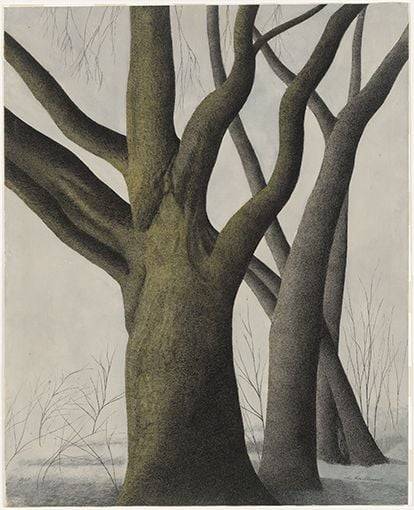

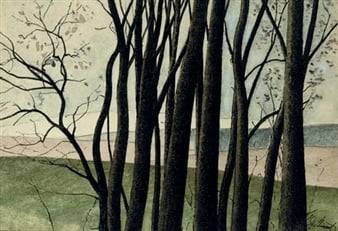



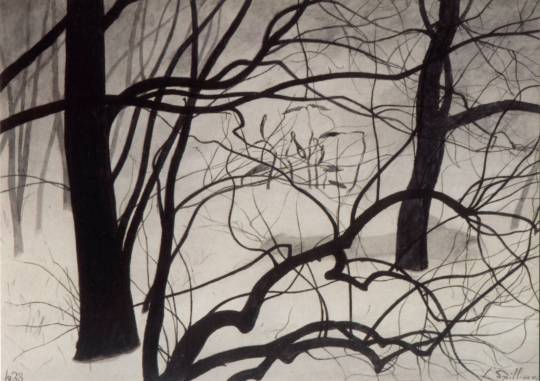

"In later life, the artist took to painting trees as if they too were lonely beings."
Léon Spilliaert (1881 – 1946) was a Belgian symbolist painter and graphic artist.
At school, Spilliaert studied the philosophy of Nietzsche and Schopenhauer and began to read the claustrophobic stories of Edgar Allan Poe. At the age of 18 he started a degree at the Academy of Fine Arts in nearby Bruges, but illness seems to have stymied his plans and he never finished the course. Perhaps by way of consolation, his father took Spilliaert to the World’s Fair in Paris, in 1900, and bought him the large box of coloured pastels that is now in the Mu.Zee in Ostend. He used them as subtly as Seurat, leaving the white paper blank for a pencil of light stealing across a street or the glowing disc of the moon. Grey, black, Prussian blue, ultramarine – all the dark pastels are worn down, the warm colours almost untouched.
Read a good article https://www.theguardian.com/.../leon-spilliaert-belgian...
Spilliaert was born in Ostend, the oldest of seven children of Léonard-Hubert Spilliaert, a perfumer, and his wife Léonie (née Jonckheere). From childhood, he displayed an interest in art and drawing. A prolific doodler and autodidact, he was predominantly a self-taught artist. Sickly and reclusive, he spent most of his youth sketching scenes of ordinary life and the Belgian countryside. https://en.wikipedia.org/wiki/Léon_Spilliaert
38 notes
·
View notes
Text







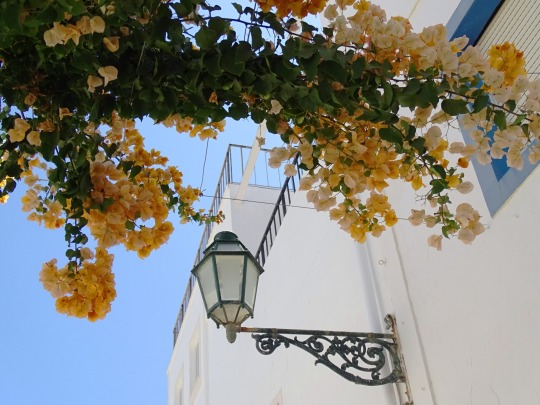
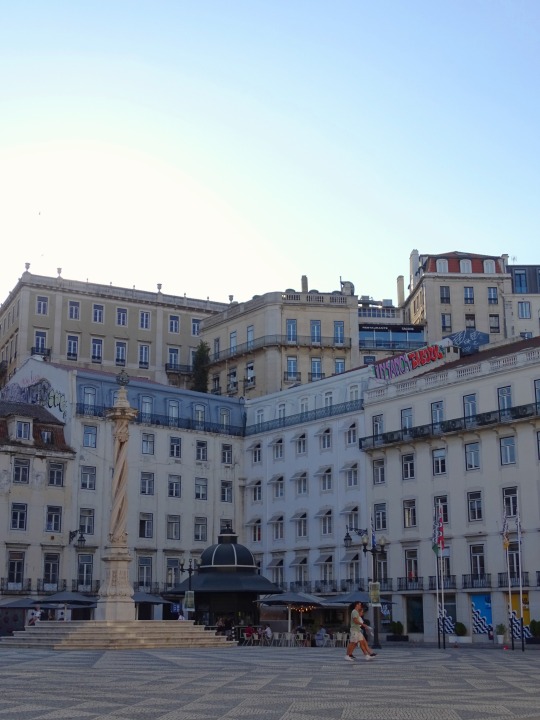
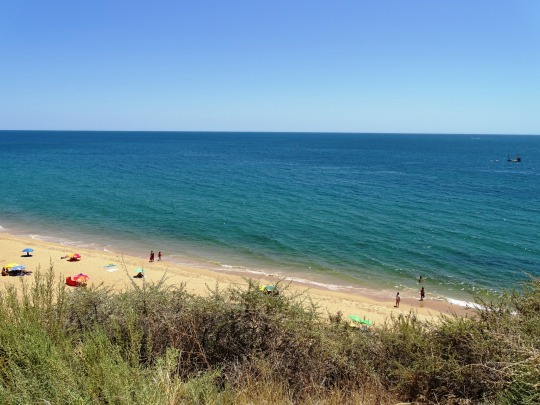














Portugal Day
Portugal Day is the official national holiday of Portugal, and it is observed on June 10 each year. In Portugal, this day is usually called ‘Dia de Portugal, de Camões e das Comunidades Portuguesas,’ which translates to ‘Day of Portugal, Camões, and the Portuguese Communities.’ The day is intended to remember the death of Luís de Camões, who is recognized as the country’s greatest national icon. He is most known for his poem, which narrates the story of Portuguese explorations in the 15th century and has since been accepted as a national poem in Portugal. However, because his birth date is uncertain, his death date, June 10, 1580, is commemorated as Portugal’s National Day.
History of Portugal Day
As much as he came to represent Portuguese nationalism, Camões died during the succession crisis that led to Philip II of Spain taking Portugal’s throne in 1580. However, the kingdom recovered its independence on December 1, 1640, when the Spanish were expelled during the Portuguese Restoration War and John of Bragança was crowned King John IV of Portugal.
Camões’ poem became such a powerful symbol of Portuguese heritage that it was made a national anthem and was honored by every elected government. Camões was even used as a symbol for the Portuguese people during the authoritarian regime of the 20th century.
Portugal Day has been observed every year save 1974 since its inauguration in 1944 by Prime Minister António de Oliveira Salazar. The Carnation Revolution, a military coup that deposed the autocratic Estado Novo dictatorship, halted the celebrations that year.
After 1974, the celebrations were expanded to include the Comunidades Portuguesas, Portuguese emigrants, and their descendants residing in communities all over the world.
The official celebrations were held in the town of Elvas for the second time since 1997, this time on July 4, 2013. As a reminder that it is also a day for the Portuguese community around the world, in 2016 the formal festivities were split between Lisbon and Paris for the first time.
Although Portugal Day is primarily honored in Portugal as a national holiday, it is also recognized as such in some other nations. They include Canada, the United States, and the United Kingdom.
Portugal Day timeline
15th Century The National Poem
Luís de Camões composes an epic poem titled “Os Lusíadas,” translated as “The Lusiads” that becomes a symbol of Portuguese pride.
1580 A Double Tragedy
Luís de Camões dies and the Portuguese throne is claimed by Philip II of Spain.
1640 The Restoration War
The Spanish are expelled and John of Bragança is crowned King John IV of Portugal.
1974 The Carnation Revolution
Portugal Day celebrations are suspended for one year due to countrywide protests.
Portugal Day FAQs
What is Freedom Day Portugal?
Freedom Day, known in Portuguese as Dia da Liberdade, is a national holiday in Portugal observed every April 25. It marks the “Carnation Revolution” that took place in 1974, celebrating the end of the war and dictatorship in the colonies.
What do Portugal people celebrate?
Every community has its church processions, dance, music, fireworks, and wine to celebrate her Patron Saint and Saint’s Day.
What is Santa called in Portugal?
Santa Claus is called ‘Pai Natal’ by children in Portugal. They believe he brings presents on Christmas Eve and places them under the Christmas tree.
Portugal Day Activities
Visit Portugal
Explore Portuguese content
Try a Portuguese cuisine
Travel to one of the world's oldest civilizations and join the people in celebrating Portugal Day. The region is home to some of the most remarkable antiquities on the earth, including the world's oldest bookstore and the longest bridge in Europe.
Learn more about the legend, Luís de Camões, and other explorers who brought fame and prosperity to the country. According to legend, Camões lost one eye in combat, authored the famous 'Os Lusiadas' while traveling, and survived a shipwreck. His feats are part of a long line of famous Portuguese men.
Portuguese cuisines are an amazing treat, as the country is known for being one of the world's largest consumers of seafood. On Portugal Day, you can add some heat to your diet by eating a hot bowl of Portuguese fish soup.
5 Mind-blowing Facts About Portugal
The abolishment of slavery
The Portuguese language is very popular
The country had over 50 colonies
It is home to Europe’s longest bridge
It is the oldest European country
Portugal was the first colonial country to abolish slavery in 1761.
Portuguese is the world's sixth most spoken language and the official language of nine countries.
Portugal's colonial empire encompassed what are now 53 independent countries.
With its six lanes and a cable-stayed structure across the Tagus River north of Lisbon, Portugal's Vasco da Gama Bridge is Europe's longest.
Portugal was a kingdom for approximately 800 years, from 1139 until 1910, making it Europe's oldest nation.
Why We Love Portugal Day
It’s a national Portuguese symbol
It is a perfect way to preserve Portuguese heritage
It is always a big party
Every Portuguese takes pride in celebrating Portugal Day by paying tribute to Camões because his poem chronicles the country's rich cultural history. The poem, which has inspired countless great deeds throughout Portuguese history, concentrates mostly on the 15th-century Portuguese discoveries, which brought fame and prosperity to the country. It is regarded as one of the best and most important works in Portuguese literature.
Every year on Portugal Day, children are told stories about Camões and how his achievements inspired numerous changes in the country. This contributes to the preservation of cultural heritage and assures that the tradition will be passed down through generations.
On Portugal Day, several festivities and parties are held in Portuguese cities. Portugal Day events are also held in Portuguese communities around the world to commemorate the unique day.
Source
#Praça do Comércio#Lisbon#Lisboa#Albufeira#Algarve#Atlantic Ocean#Camões Monument by Victor Bastos#D. Maria II National Theatre#Rossio#Ourique#Belém Tower#Luís de Camões#São Jorge Castle#Dia de Portugal de Camões e das Comunidades Portuguesas#national holiday#Os Lusíadas#10 June 1580#died#445th anniversary#Portuguese history#summer 2021#tourist attraction#cityscape#architecture#landscape#seascape#Southern Europe#original photography#travel#vacation
6 notes
·
View notes
Note
Summer, 1987. A dry breeze wafted through dusty Stull, Kansas. That breeze brought little relief to the farmers in the fields wiping the sweat from their brows. It brought little change to the direction of the weather vanes on the barn rooftops. It brought little rustling to the cornstalks in the fields or the leaves on the trees. That breeze blew the Møller family right into town. Colden, Lilla, and their three children had landed in the country less than three hours prior. They had bought a house in Kansas through a friend of a friend. They had needed to leave their home in Paris for... reasons. Reasons the oldest son, Stefan wouldn't reveal except under waterboarding, reasons the younger son, Shuonun, thought were stupid and sort of funny, and reasons the youngest daughter, a bouncing baby girl named Sarpedon, were oblivious to. Stull was to be their new home, much to the chagrin of Shuonun. He was not excited for country life like his parents were. He was not relieved to be in America like his brother was. He was not blissfully ignorant like his six-month-old sister was.
Alexander thanked himself that his parents weren’t farmers, they owned the drug store in the sleepy town, but he felt they had as many kids as most. The town was large enough that the kids weren’t forced to all play with each other in some one-room-schoolhouse but small enough that everybody knew the Pine last name.
Furthermore, everyone knew that a new family was moving to town, and the young boy would be damned if he didn’t see them in person. Pushing his way to the front of the crowd around the house, he took note of the ages of the children, already planning to brag to his younger sister that there was a boy his age.
Watching the mayor welcome the family to town, he rolled his eyes at the over-friendliness from a woman who had yelled at him for climbing a tree an hour prior.
6 notes
·
View notes
Text
okay it’s FINALLY time to explain my interpretation of the escalus-bellerose family

here is the family tree i made!
so just some explanation:
- prince/swan escalus is the oldest, giovanni is the middle, and mateo is the youngest (they’re all still fairly close in age though)
- im a transmasc prince escalus truther and i think even though it was probably unconventional to leave ruling duties in the hands of a woman, caterina and pasquale decided swan would be in charge before he’d transitioned. like by the time they bounced and left him to rule he’d hadn’t been able to tell them he wasn’t a woman. they might have been fine with it but he’ll never know as he hasn’t seen them since.
- prince escalus also just goes by his last name most of the time, only mateo, giovanni, and his parents refer to him as swan
- giovanni left verona as soon as he could to go start his own family, sending paris back there as an adult because he’d arranged for him to marry juliet. he barely talks to his brothers anymore and paris had never met may or mercutio until he first came to verona.
- mateo married anna when they were fairly young, changing his last name to hers. they hadn’t really planned on having kids but felt obligated to (they felt like they had to carry on the bloodline, not knowing paris existed yet).
- when may and merc were born, the four of them lived in the family house with prince escalus. they were fairly involved in their kids lives when they were young, but escalus also helped out a lot. he loved taking care of them.
- around when may and merc were 10, escalus had noticed that anna and mateo were paying much less attention to the twins and leaving them in his care more often than not. when he confronted them about it, what did they tell him? that they had plans to leave verona and leave may and mercutio with him permanently.
- escalus was very mad with them, he didn’t know why they wanted to just leave their kids behind and pretend like they didn’t exist. he loves mercutio and may, but he isn’t their parent. mateo and anna didn’t listen, and one day they just left and never returned to verona. escalus became their permanent guardian after that. they didn’t even return when mercutio died.
yeah. i have thoughts about this family.
#monty monolouges#&juliet musical#romeo and juliet#prince escalus#may bellerose#mercutio escalus#<- still using that tag for merc#character interpretation#also if you wanna send asks bc you wanna know more go ahead!!!#i have so many thoughts about them
5 notes
·
View notes
Text
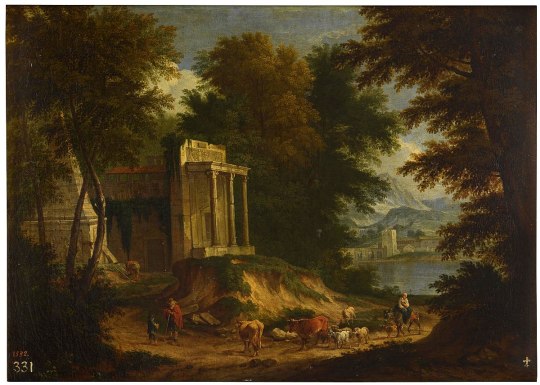
Adriaen Frans Boudewijns - Landscape with ruins -
Adriaen Frans Boudewijns (Brussels, 3 October 1644 – Brussels, 3 December 1719) was a Flemish landscape painter, draughtsman and etcher. He was known mainly for his landscapes with trees, Italianate landscapes with architecture, rivers and villages, city, coast and country views and architectural scenes.
Adriaen Frans Boudewijns was born in Brussels where he was baptized in the St Nicolas Church on 3 October 1644. He was the son of Nicolas Boudewijns and Françoise Jonquin. He married Louise de Ceul on 5 October 1664. The couple likely remained childless. On 23 November 1665 he was registered at the same time as a pupil and master of the Brussels Guild of Saint Luke. He was a pupil of the landscape painter and engraver Ignatius van der Stock.
On 16 December 1666 Boudewijns is recorded in Paris when he entered into a 3-year contract to work in the service of the Flemish painter Adam Frans van der Meulen. He is recorded as working with van der Meulen on the design of 12 Gobelins representing the months for French King Louis XIV. Van der Meulen executed the smaller figures and part of the landscapes. The remainder of the landscapes was completed by Boudewijns and Abraham Genoels, another Flemish painter active in Paris.
Boudewijns also travelled with Genoels to make sketches of a castle near Brussels for a design of a tapestry for the King of France. While in Paris, Boudewijns engraved many of van der Meulen's compositions. He also made engravings after the work of Genoels, the Dutch artist Jan van Hughtenburgh and his own designs.
Boudewijns married the sister of Adam Frans van der Meulen called Barbe or Barbara on 12 January 1670. The couple had two children of whom the oldest named Frans became a painter. Barbe Boudewijns died on 2 March 1674. Around this time Boudewijns must have returned home. He is documented in Brussels in 1677 when he was present at the baptism of his nephew Adriaen Frans on 4 June 1677. He married a third time in Brussels in 1670.
He had a studio in Brussels where he received in 1682 Andreas Meulebeek as his pupil and the next year Mathys Schoevaerdts. His nephew Adriaen (Frans) became his pupil in 1694. He also trained his son Frans.
It is believed that he was ruined during the bombardment of Brussels, the vicious artillery bombardment of Brussels carried out by French troops on 13, 14 and 15 August 1695 which caused the destruction of a third of the buildings in Brussels.
He died in Brussels on 3 December 1719.
8 notes
·
View notes
Text
The Gods and Goddess of Greek Mythology

(Family tree of the Greek Gods and Goddess, Google Images).
The Gods came into being through Kronos and Rhea and then were completed through the many children that Zeus had.
Zeus
Zeus is the youngest of his brothers and sisters.
The supreme ruler of the Greek Gods. Zeus is the God of the sky after him and his brothers drew lots to share the universe. Other names for Zeus included Rain-god and the Cloud-gatherer. He is the wielded of the thunderbolt he used to take down his father Kronos. Zeus believes that his is the most powerful and therefore nobody can best him. But many times he is duped by the other gods like Poseidon, his brother and Hera, his wife.
Zeus is also known for his many many infidelities that result in numerous children that he tries to hide from his wife Hera. Supposedly this believe of his conquest of women came from the fact that as the religion of the Gods spread throughout Greece Zeus was merged with whichever ruling God was in that area and therefore the wife was then given to Zeus. But the later Greeks did not care for these love affairs of Zeus.
Zeus was known to the Greeks through the aegis on his breastplate. The Eagle was his scared animal and many prayed and sacrificed to him for help and guidance. Zeus's oracle was Dodona, home to his scared Oak tree. The word of Zeus was heard in the rustling of the Oak tree by the priests that reside at Dodona.
Poseidon
Poseidon is the second eldest son of Kronos.
He is the ruler of the sea as decide by the lot he choose when him and his brothers split the universe between themselves. Poseidon is considered the second most powerful God with only Zeus as his superior. The Greek civilization honored Poseidon with many prays and sacrifices due them being a seafaring culture. The sea was hugely important to the Greeks and therefore Poseidon was an honored God.
Poseidon was always depicted with his weapon, the trident. He was also commonly known as the Earth-shaker; created with the creation of Earthquakes. He is also known as the Father of Horses that he gifted to mankind. He was also associated with bulls, but so many other Gods are too.
Poseidon was married to Amphitrite, a granddaughter of the Titan of the Ocean. Poseidon created for him and his wife a magnificent palace under the sea, but Poseidon was found most often on Olympus; the home of the Gods.
Hades
Hades was the oldest brother of Poseidon and Zeus.
He is the ruler of the Underworld after splitting the universe up between himself and his brothers. He ruled over the dead in his realm of the dark from which he rarely ever left. He never really went to Olympus, never urged to go and was not wanted. He was an unpitying, inexorable, but he was not an evil god.
He was always depicted with he Helm that when wore would make the person invisible.
He was married to Persephone, the Goddess of Spring and daughter of the Goddess Demeter. He kidnapped Persephone and carried her to the Underworld were she became Queen.
He was God of the Dead, not death. The God of death was Thanatos.
Hera
Hera is the wife and sister of Zeus.
She is the protector of Marriage and woman (not a protector to the women that Zeus defiled). On Olympus she was revere and honored the same as Zeus.
She is known throughout much of mythology as the punisher of the many women that her husband Zeus slept with, even though the women were tricked and deceived into sleeping with Zeus. Her anger of punishing these women even continued on to their children over the fact that Hera never forgot.
She was venerated in every home of Greece and many woman pray to her for help in their marriage. Hera's daughter Ilithyia or Eileithyia helped women during childbirth.
The course of the Trojan War could have ended in peace with neither nation conquering the other if Hera's beauty hadn't been slighted by Paris, a Trojan Prince. Her anger only ended with the fall of Troy.
In only one story Hera was the protector of Heroes. In the quest of the Golden Fleece she protected the heroes and inspired heroic deeds. This was the only story though where she protected heroes.
For Hera the cow and peacock were her scared animals and she was a patron to the Greek city of Argos, her favorite city.
Athena
Athena was the daughter of Zeus after she sprang from his head, full grown and wearing armor. She was also the favorite of Zeus over all his children.
She is known to be a ruthless and fierce battle goddess in the Iliad, but everywhere else is depicted as war-like in defending the state and home from enemies. She is seen as the goddess of the City, protector of civilized life, crafts. She invented the bridle that helped men tame horses. Later she is the embodiment of wisdom, reason, and purity.
She was favored by Zeus and he trusted her to carry the aegis shield, which displayed the head of Medusa, and she even carried her father's thunderbolt.
Another name for Athena was Pallas Athena and she was commonly called gray-eyed, having cold gray eyes. She is one of the three virgin goddesses, called the Maiden.
She became the patron goddess of the city Athens, which was named for her. She had argument with Poseidon on who would be the patron of the city. She gives the city the Olive tree, which became her scared tree. The Owl became her symbol and scared animal.
Apollo
Phoebus Apollo was the son of Leto and Zeus and the twin brother of the Goddess Artemis.
He was born on the island of Delos. He is known as "the most Greek of all the Gods." In Greek poetry he is always depicted as a beautiful figure, mayhaps because he is the god of poetry. He is a master musician that delights the Gods on Olympus by playing his golden lyre. He is also an archer-god with his silver bow; known as the far-shooter.
He also was a healing god and taught man that art of healing. He is also the God of light and therefore the God of Truth, since he had no darkness in himself.
Delphi at the bottom of Mount Parnassus sat the Oracle of Apollo. Where heroes and other figures of mythology would go to seek help from the God of Truth. Castalia was his scared spring. Cephissus is scared river. It was believed to be the center of the world and became a pilgrimage site for those in and outside of Greece. The truth was spoke through a priestess who would go into a trance while she spoke. The trance was caused by the vapor rising from a deep cleft in the rock over which the priestess sat her legged stool, the tripod.
The Oracle of Delphi allowed for a direct link between Gods and Man. It worked as a way for men to be guided, learn divine will, and showing men how to make peace with the gods. It also allowed men to be purified to cleanse themselves even for those who have killed their kin.
Other names of Apollo include Delian because of his birth on Delos and Pythian for his slaying of the mighty python (Serpent, a large snake). The python lived in a cave in Mount Parnassus and was a very severe contest for Apollo.
The name Phoebus means brilliant or shining over the fact he was known as a Sun-god, although the Sun-god was Helios the child of the Titan Hyperion.
Some tales depicted Apollo as being cruel and pitiless, but there is very little of that left in him. He is more the beautiful and poetic God.
His sacred tree was the laurel tree. He had many scared animals the chief ones being the dolphin and crow.
Artemis
Artemis is the daughter of Leto and Zeus, the twin sister of Apollo.
She is one of the three maiden or virgin goddesses.
She is known as the Huntress, due to her love of the woods and wild.
Artemis was also a protector of the youth; Maidens.
In the myth of the Trojan War, Artemis held the Greek fleet from sailing because one of her prized animals was killed. She asked for the sacrifice of a maiden. At the last minute she whisked the girl away and replaced her with an animal.
If a woman died a painless death, they were said to have been shot by one of Artemis's silver arrows.
In early Greek Mythology she was a moon goddess, taking the place of the Titan Selene, sister of Helios.
In later years she was known as the goddess of three forms. Those forms being Selene; the sky, Artemis; the earth, Hecate; the lower world, darkness, crossroads, evil magic, awful divinity.
Artemis was the example of uncertainty between good and evil.
Her sacred items are the Cypress tree, wild animals, most commonly the Deer.
Aphordite
The goddess of Love and Beauty.
The laughter-loving goddess; mocking or sweetly.
The birth of Aphrodite is different depending on the source.
In the Iliad by Homer, she is the daughter of Zeus and Dione.
Homer paints her as being a weak, meek, soft goddess
In another version she sprung from ocean sea foam. Aphors is the Greek word for foam.
She also goes by other names, Cytherea, Cyprian; due to Cythera and Cyprus being sacred to her where she washed up after her birth; mentioned in the Homeric Hymns.
Later she is depicted as treacherous and malicious to men.
She is the wife of the god Hephaestus, but has love affairs with the god Ares.
Her sacred items are the Myrtle and birds, mainly the Dove, but also the Sparrow and Swan.
Hermes
The son of Zeus and Maia, the daughter of the Titan Atlas.
Hermes is depicted as the most human looking god.
He is graceful and swift. His easy to identify due to his winged sandals, low crowned hat and is staff known as the Caduceus.
If a god has wings then it is Hermes.
He is the messenger of the Gods, due to his swiftness.
Hermes is the shrewdest, cunning god. He is also a Master Thief.
When Hermes was just a day old her stole the cattle of Apollo. To appease Apollo Hermes invented the Lyre out of a tortoise shell and gave it to Apollo.
Hermes is the god of thieves, commerce, market, protector of traders, and the guide of the dead; the Divine Herald. He is the only god other than Hades who can travel to and from the Underworld. He leads the souls to the Underworld.
Hermes appears the most in myths.
Ares
The God of War.
Ares is the son of Zeus and Hera, who both detested him.
He is hated throughout the Iliad, often only rejoiced during times of winning or for escaping his ruthless nature. Homer describes him as ruthless and murderous, a bloodstained incarnate curse of mortals.
Homer also describes him as a coward; bellows in pain and runs away when wounded.
But, he has many attendants on the battlefield to inspire anyone for battle.
Eris, the sister of Ares and the goddess discord and her son Strife.
Enyo, Goddess of War walks beside him.
Followed by Terror, Trembling and Panic, whose groaning causes the earth to stream with blood as the move throughout the battle.
He is the lover of Aphordite.
He is very lustful for women, but is also a protector to mistreated women. Women often pray to him when they are treated badly.
His thirst for bloodshed and war made many dislike him.
He is a symbol of War and has little to do with myths.
He was mainly worshiped in Sparta
He is believed to have come from Thrace; the home to a rude and fierce people in Northeast Greece.
His sacred animal is the Vulture and Dog.
Hephaestus
The God of Fire.
The son of Zeus and Hera. (Sometimes just Hera in her retaliation of Athena's birth).
His appearance is stated as ugly and he was lame. The deformity comes from the fact he was thrown from Mount Olympus by Hera because he was ugly. Others say it was Zeus because Hephaestus defended Hera.
He is highly honored by the gods due to his abilities as a blacksmith. He created their weapons, armor, and furnishings.
He also created helpers out of gold to run his workshops.
His forges were located under volcanoes.
Hephaestus is the husband of Aphordite.
He is a kind and peace-loving god that is popular to mortals and city life.
He is the patron of the Arts, handicrafts. and a Protector of the Smiths.
Hestia
A sister of Zeus.
She is a maiden or virgin goddess.
Has no part in the myths.
She is the goddess of the Hearth, symbol of Home.
Every meal began and ended with an offering to her.
Each city had a sacred Hearth to her. The fire was never allowed to go out.
When a colony of a city was founded coals were taken from the hearth of the mother-city and brought to the kindle the fire of the new city.
Demeter
A Daughter of Cronus and Rhea.
Goddess of Agriculture and the Harvest, Sacred law and the cycle of life and death.
Is the mother of Persephone, the goddess of Spring.
Demeter and her grieve and depression of her daughter having to go to live in the Underworld once a year is the reason we have winter. In her anger she kills mortal crops until her daughter reunites with her.
She gave man the knowledge of growing and using corn,
A fertility festival, Thesmophoria was held every year to honor Demeter. Only women attended.
Dionysus
The God of Wine, wine making, fertility, dance, and pleasure. Was known as the bringer of civilization because of his wine making.
Is the son of Zeus and Semele.
Carried an ivy covered wand, Thyrsus.
He had the ability to drive mortals insane.
He is depicted as a young man with long hair.
He married a mortal Ariadne.
Had cults dedicated to him often characterized by madness.
He is usually depicted with exotic creatures like leopards and panthers.
Had many followers like satyrs, and frenzied female worshipers called Maenads.
Athens held a festival every year for Dionysus, where poets came to perform Greek tragedies and comedies some of the most well-known pieces of ancient literature were performed here.
#greek mythology#zeus greek mythology#goddess hera#athena#apollo#poseidon#hades#demeter#artemis#hera#ares#hephaestus#dionysus#hestia
16 notes
·
View notes
Text
Yamatohime-no-mikoto ~ The woman who determined the location of Ise Jingu ~
Ise Jingu, with its history of over 2,000 years, is the most prominent among Shinto shrines. Amaterasu-Omikami, a Japanese goddess, is enshrined there.
The Nihon Shoki, the oldest formal chronicles of Japan, says that the location of Ise Jingu, was determined by a revelation from Amaterasu-Omikami herself: “I shall be here eternally”.
Yamatohime-no-mikoto was the person who received the revelation. She was the daughter of the 11th emperor. She took over her aunt’s position, and took the lead in an imperial tour to seek out a new, appropriate place to enshrine Amaterasu-Omikami.
After leaving Yamato where the emperor lived, the present-day Nara Prefecture, she and the members of her party went on northbound through the west area of Mie Pref. to the area beside the east side of Lake Biwa, in Shiga Pref.
After that, they changed the direction to head westbound and moved into the west area of Gifu Pref. They changed their direction there again and went on south through the east area of Mie Pref. along Ise Bay.
It is said that they continued their tour while staying in many regions for years and teaching rice cultivation and weaving to the people there. The result of such a tour style is that it took a long time for her tour to come to an end.
The end of her long and wandering tour was Ise, the place she finally received the revelation from Amaterasu-Omikami.
The mysterious word of “Revelation” and a woman of “Yamatohime-no-mikoto”, who achieved her mission as the leader of a unique project in ancient times, strongly fascinated me and brought me to Ise Jingu.
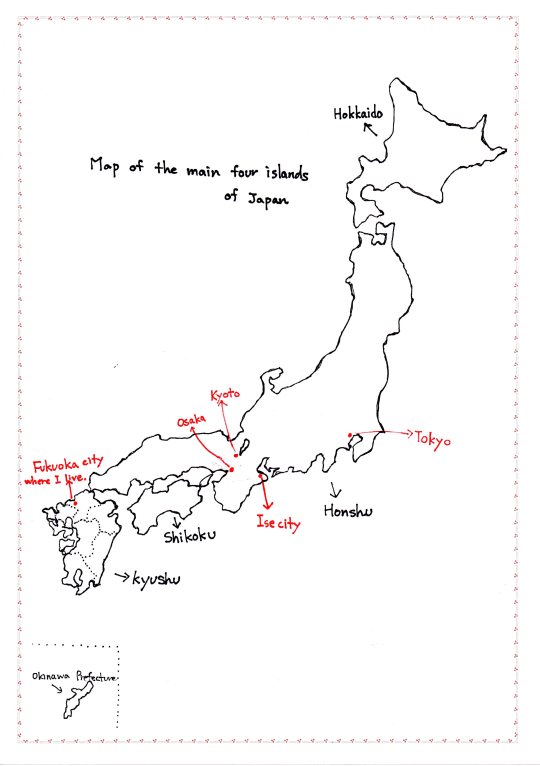
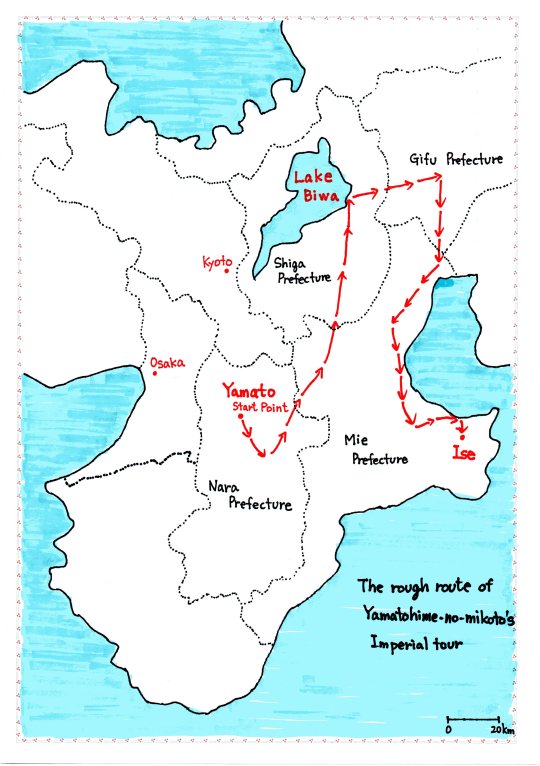
~ ❀ ~ ❀ ~ ❀ ~ ❀ ~ ❀ ~ ❀ ~
Ise Jingu includes 2 Jingus and 123 shrines. The center of Ise Jingu is two Jingus: Kotaijingu, called Naiku, where Amaterasu-Omikami is enshrined, and Toyo’ue-daijingu, called Geku, where Toyoue-Omikami is enshrined.
The total area of Ise Jingu, including Naiku and Geku and forests, is vast; it occupies approximately 20% of Ise City. The English HP of Ise Jingu says it is almost the same scale as the center of Paris.
Naiku and Geku are in different forests about 5km apart. When we visit Ise Jingu, we generally visit Geku first, and then visit Naiku. I also followed this rule.
Both Jingus were so calm and peaceful that I felt comfortable there. I enjoyed the beautiful scenery in winter.
Moreover, my visit was not only enjoyable but also meaningful: I saw lots of the hundreds-of-years old enormous trees, the main sanctuaries of Niku and Geku and other structures made from plain lumber, and Kodenchi of Geku.
*Kodenchi
Every 20 years, the main sanctuaries of Niku and Geku, and the divine places of 14 shrines that have deep relation to Naiku or Geku, are reconstructed on each Kodenchi, the previous site that is adjacent to the present site, with the same dimensions. After that, each object of worship is moved into a new one.
This reconstruction, which has the purpose not only of passing of Ise Jingu on to the next generation but also the passing on of architectural techniques, is the most important ritual event, called Shikinen-sengu.
The next Shikinen-sengu will take place in 2033. Each present site will become a vacant lot and will be called Kodenchi for the next 20 years.
Ise Jingu, which was determined by the revelation that Yamatohime-no-mikoto received from Amaterasu-Omikami 2,000 years ago, exits at the same location even now, and it gets so many domestic and foreign visitors.
How great the thing she achieved was!
~ ❀ ~ ❀ ~ ❀ ~ ❀ ~ ❀ ~ ❀ ~
My visit to Ise Jingu was impressive. The thing that has captured me even to this day is the sunshine that I saw at the Main Sanctuary of Geku.
I saw it unexpectedly. When I walked a path outside the row of trees alongside the Kodenchi, I happened to turn my attention toward the Kodenchi. I noticed the brightness seen through the half-darkness that was created by the row of trees.
It was hard for me to grasp the situation immediately. I stopped to look in that direction and gradually I realized what it was.
It was the brightness of the soft and graceful golden sunshine pouring into the Main Sanctuary surrounded by a wall. The Main Sanctuary, bathed in the sunshine was calm and spiritual.
When I saw the sunshine, I believed that Yamatohime-no-mikoto had also seen the beautiful sunshine and a spiritual scene, or landscape, or view in the sunshine in Ise after her long and tough tour, and also believed she had received the revelation then.
~ ❀ ~ ❀ ~ ❀ ~ ❀ ~ ❀ ~ ❀ ~
A long time has passed since I knew the person of Yamatohime-no-mikoto and her imperial tour and became interested in them. I didn’t always think of her. However, even if I forgot her, I remembered her again.
Every time I remembered her, I imagined various things that I think might be related to her and her tour: there might have been some political purposes in her tour; also, what were the tools of rice cultivation and weaving like in 2,000 years ago?, and so on.
I enjoyed such times freely because they occurred in the old age which no one knew the facts and because I didn’t need to be determine any conclusions accurately, since I’m not a researcher.
~ ❀ ~ ❀ ~ ❀ ~ ❀ ~ ❀ ~ ❀ ~
The biggest mystery for me was the reason why she repeated leaving the regions where she stayed for years even though she built temporary shrines for Amaterasu-Omikami and grew rice from nothing.
She broke off all the things she had built up there, making efforts to be mindful of the people around her or to keep thinking about the things that she and everyone would do as the leader of the tour. She repeated that.
It was difficult for me to find out my own answer, but I hit upon an idea.
It might be that she and her aunt, who had sought the location for Amaterasu-Omikami for long time before her, believed that Amaterasu-Omikami would give them some kind of expression of her intension when they found the right location.
I think every region where Yamatohime-no-mikoto stayed for years was a good one. I guess she had expectations for many places.
However, when she realized she wouldn’t get any expression of Amaterasu-Omikami’s intension even if she would wait longer, she broke off everything and headed toward the next place. I consider that the long wandering tour was the result of this repetition.
~ ❀ ~ ❀ ~ ❀ ~ ❀ ~ ❀ ~ ❀ ~
I guess the people who sent her on this tour must have asked her about her progress many times, half-giving up and half-rushing. However, I believe it must have been herself who felt the most frustrated.
How disappointed she must have been when she left the places where she stayed at for years! In spite of being in such situations, she didn’t give up.
When I imagine the difficulties and repeating disappointments she experienced, I can’t help but admire her strong will.
At the same time, I think of how she must have felt when she received the revelation. How relieved she must have been at the time!
I believe that she was looking at the celestial sunshine and spiritual scenery that the sunshine created, which were more than enough to make up for all her struggles and difficulties, when she finally received the revelation from Amaterasu-Omikami.
~ ❀ ~ ❀ ~ ❀ ~ ❀ ~ ❀ ~ ❀ ~
The sequel to the story about Yamatohime-no-mikoto
Yamatohime-no-mikoto kept staying in Ise and serving Amaterasu-Omikami after having fixed the location for enshrining Amaterasu-Omikami.
She led the constructions of other shrines in Ise Jingu, organized the various rituals of Ise Jingu that have been performed to the present time, and determined the offerings for Amaterasu-Omikami.
She was considered as the origin of a system of Saio in later periods; Saio was an unmarried imperial princess who served for Amaterasu-Omikami in place of the emperor at Ise Jingu.
In 1923, the people involved in Ise Jingu and the people of Ise, who had thanked Yamtohime-no-mikoto and her achievements, built Yamatohime-no-miya, a shrine, to deify her. I like this story.
I think Yamatohime-no-mikoto would definitely say, “I did just what I should do”, but at the same time, I believe she would be touched deeply by their appreciation for her.
Yamatohime-no-miya is in a forest between Naiku and Geku.
It was a beautiful shrine and suited to her: the simple and graceful divine place, the long and wide approach to the divine place, the well-maintained forest on both sides of the path, the singing of birds and the sunlight that filtered through the leaves of trees and poured onto the stairs toward the divine place.
They made me feel the people of Ise’s deep appreciation of her. I felt a great sense of relief there.
倭姫命(やまとひめのみこと)
~ 伊勢神宮の場所を決めた女性 ~
二千年以上の歴史を持ち、神社の最高位にある伊勢神宮。そこには、天照大御神という女神が祀られています。
日本最古の正史である日本書紀によると、伊勢神宮は、天照大御神自身の「ここに居ようと思う」というにお告げによってその場所が決まったということです。
お告げを受けたのは、倭姫命(やまとひめのみこと)という女性。第11代天皇の皇女で、伯母の仕事を受け継ぎ、天照大御神を祀る新たな場所を探すための巡幸を行った人です。
彼女と一行は、天皇が住むヤマト、現在の奈良県を出発し、三重県の西側の地域を通り、滋賀県の琵琶湖の東側の地域まで北上。その後、東へ進行方向を変え、岐阜県の西部に入ります。そして再び進行方向を変え、愛知県を通り三重県東部を伊勢湾沿いに南下しました。
幾つもの地域に何年も滞在して、人々に稲作や機織りを教えながらの旅だったそうです。巡幸が終わりを迎えるまでには長い時間がかかり、その最後に、彼女は伊勢で天照大御神からのお告げを受けました。
「お告げ」という神秘的な言葉と、古代に行われた特別なプロジェクトのトップとしての使命をやり遂げた倭姫命という女性に強く惹かれ、伊勢神宮に行ってきました。
~ ❀ ~ ❀ ~ ❀ ~ ❀ ~ ❀ ~ ❀ ~
伊勢神宮には、125の神社があります。その中心は2つの神宮。天照大御神が祀られている内宮と呼ばれる皇大神宮と、豊受大御神が祀られている外宮と呼ばれる豊受大神宮です。
内宮と外宮、そして神宮の森を合わせた伊勢神宮の面積は広大で、伊勢市の約20%に及ぶということです。伊勢神宮英語版ホームページによると、パリの中心部と同じくらいの広さだとか。
内宮と外宮は、約5キロメートルはなれた別の森の中にあります。参拝は、一般的に外宮から内宮の順で行います。私もそのルールに則り参拝しました。
どちらも森の中にあるので、落ち着いていて気持ちがよく、冬枯れの美しい景色を楽しみながらの参拝となりました。
そして楽しいだけでなく、樹齢何百年という木々、そして、内宮と外宮の正宮を始めとした素木造りの様々な建造物、外宮の古殿地*などを見ることができ、とても有意義でした。
*古殿地
内宮と外宮の正宮、そして内宮と外宮に関係が深い14の神社の社殿は、20年毎に、それぞれの大きさを変えることなく、内宮と外宮の現在の正宮の隣にある、前に正宮があった場所(古殿地)に新たに建て替えられ、その後、ご神体がそこに移されます。
神宮を後世に受け継ぐだけでなく、建築技術の継承という目的を持つこの20年毎の建て替えは、伊勢神宮最大の行事で神宮式年遷宮と呼ばれます。
次の式年遷宮は2033年。内宮と外宮の正宮、そして他の14の神社の社殿が現在ある場所は、遷宮後空き地になり、その後20年間、古殿地と呼ばれることになります。
2000年前に倭姫命が天照大御神からのお告げを受け取り、その場所が決まった伊勢神宮は、今も同じ場所に存在し、国内外を問わず多くの人が訪れています。
彼女が成し遂げたことは何と大きかったことでしょうか。
~ ❀ ~ ❀ ~ ❀ ~ ❀ ~ ❀ ~ ❀ ~
印象深かった伊勢神宮参詣。その中で、今でも私の心を捉えているのは、外宮の正宮で見た美しい陽の光です。
それは偶然でした。外宮の正宮の古殿地の横にある道を歩いていた時の事です。ふと古殿地の方に目を向けると、木立の薄暗がりの先が妙に明るいことに気が付きました。状況がよく呑み込めなかったので、立ち止まってその方向を見つめていると、次第にわかってきました。
それは、塀で囲まれた正宮に降り注ぐ、柔らかで気品に満ちた金色の陽の光の明るさだったのです。そして、その光に抱かれた正宮は、とても静かで神秘的でした。
そしてその時、私は、倭姫命は長く大変な旅の後、伊勢の地で美しい陽の光と、その光が作り出す神秘的な情景か景色、あるいは風景を見たのだと、そして、その時お告げを受けたのだと思ったのです。
~ ❀ ~ ❀ ~ ❀ ~ ❀ ~ ❀ ~ ❀ ~
倭姫命と彼女の巡幸を知り興味を持ってから、長い時間が経ちました。いつも彼女のことを考えていたわけではありません。ですが、忘れてもまた思い出すのです。思い出す度に、彼女や彼女の巡幸に関係ありそうなことを色々な事を考えました。
例えば、彼女の巡幸には他の目的があったのではないかとか、2,000年前の稲作や機織りの道具はどんなものだったのだろうとか。
本当のことは誰も知らない時代の事ですし、私は研究者ではないので正しい答えを出す必要もないので、自由に想像ができて楽しい時間でした。
~ ❀ ~ ❀ ~ ❀ ~ ❀ ~ ❀ ~ ❀ ~
私にとっての最大の謎は、彼女が何年も滞在した地を去ることを繰り返した理由でした。天照大御神を一時的に祀る神社を建て、恐らく一から田を作ることから始めて、米作りをしていたのでしょうに。
彼女は、巡幸の長として周りに気を使い、やるべきことを考え続ける、そんな努力をして創り上げた、神社、米作り、人間関係、全てを終わりにして、次の土地へと向かうことを繰り返したのです。
その謎にする自分なりの答えを見つけることは中々できなかったのですが、ある時思いました。
倭姫命、そして彼女の前に、やはり長い年月をかけて天照大御神を祀る地を探した彼女の伯母は、もし彼女達が天照大御神に相応しい土地を見つけた時には、天照大御神から、何らかの意思表示があると考えていたのではないかと。
倭姫命と一行が何年も滞在した土地は、どこも良い所だったのだと思います。彼女の中では、候補地は幾つもあったのではないでしょうか。
しかし、それ以上そこに留まっても天照大御神からの意思表示を得られないと考えた時、彼女は全てを断ち切り、次の土地へと向かった。その繰り返しの結果が、あの長い長い旅だったということなのだと思うのです。
~ ❀ ~ ❀ ~ ❀ ~ ❀ ~ ❀ ~ ❀ ~
倭姫命をこの巡幸に送り出したヤマトの人々からは、何度も進捗状況の問い合わせがきていたことでしょう。半ば諦めたように、半ばせかすように。しかし、一番焦りを感じていたのは、彼女自身であったであろうと私は思います。
何年も滞在した土地を去る度に、彼女はどれほど気落ちしたことでしょう。そんな状況にいたにも拘わらず、倭姫命は諦めなかった。倭姫命が経験した困難と繰り返す失望を想像する時、私は彼女の意志の強さを尊敬せずにはいられないのです。
そして、伊勢で天照大御神のお告げを受けた時の彼女の気持ちを思います。どれほど安心したことかと。そしてその時、彼女は、それまでの苦労や困難を埋め合わせるに余りある、美しい陽の光と、その光が創り出す美しい光景を見ていた。私はそう思っています。
❀ 倭姫命の話の続きとして ❀
倭姫命は天照大御神を祀る場所を定めた後も、伊勢に留まり天照大御神に奉仕しました。伊勢神宮にある他の神社の造営を指示し、現在まで執り行われている様々な神事を整え, 天照大御神への供物を定めたのは彼女です。
彼女は後に制度化された斎王、伊勢神宮で天皇の代わりとして天照大御神に奉仕する未婚の皇女の起源の人物だと考えられています。
大正時代の1923年、倭姫命と彼女の功績に感謝する伊勢神宮の関係者と伊勢の人々は、倭姫宮という神社を造営し、彼女を祀りました。私はこの話が好きです。
倭姫命はきっと「私はやるべきことをやっただけです。」と言うと思います。ですが、彼らの感謝の気持ちをこの上なく嬉しく思っていると思うのです。
倭姫宮は内宮と外宮の間にある森の中にあります。
広く長い参道、手入れの行き届いた参道の両側の森、静けさの中の鳥のさえずり、社殿に上る階段に落ちる木漏れ日。倭姫命への伊勢の人々の気持ちを感じさせる、美しく、倭姫命に相応しい神社。心が温かくなりました。
2 notes
·
View notes
Text
Antiques in Witchcraft — ↓↓↓
I decided to put this post / collection together with a dear friend of mine, and thought it would be cool to share various antiques in different religions, crafts, etc! This is a part one (1)! Please enjoy :)
➺ COINS OF ATHENS:


Heads: Athena Tails: owl
Oldest ancient Athens coin is from 6th century, its use lasted about 1000 years until Rome took over
Olive tree became basis of Mediterranean economy, its what Athena used to win over Athens from Poseidon, and its included in the tails side of coin (olive branch - top; olive leaves and olives - bottom)
Owl is connected to Athena, owls are thought of as being wise animals (due to association with Athena). Connected to Athena due to the fact that owls are unique compared to other animals (particularly birds) because their eyes are not on the side of their head but rather on the front of the face and see past their noses - similar to humans, similar to Aegis how both eyes of Medusa on shield turn you to stone... (Owls, the Aegis, and Pandora are the only ancient Greek depictions I'm aware of that are depicted with both eyes facing the viewer.) Most people in ancient art are depicted with one eye, side profile, because they are looking at each other. However, when both eyes are looking at you, that breaks the fourth wall, so owl violates the one-eye principal (it’s considered visually shocking)
Overall, included on the coin is: Goddess of Wisdom, state animal, and basis of economy. Fun fact: similar to the CA seal that has Athena, bear, and miner which is also pictured above!
➺ JUDGMENT OF PARIS BEFORE RHAEA (HAND MIRROR)
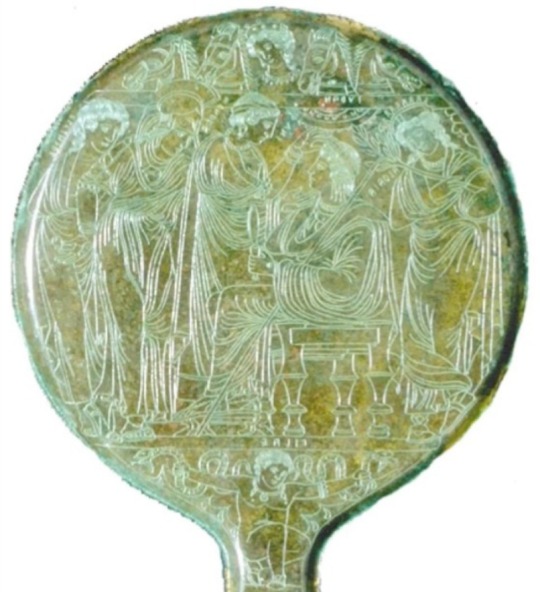

Etruscan hand mirror from 4th c. B.C., made of bronze
Figures from left to right: Elcsntre, Menrva, Uni, Turan, Althaia. Thesan with her chariot of the dawn in upper exergue. In lower exergue, Vilae strangling serpents.
Speculated that Greeks used this in rituals for Aphrodite
Download the file here.
➺ NECKLACE WITH BUTTERFLY PENDANT



This necklace was made by a Greek artist but was found in a Ukrainian tomb. Discovered in 1891 in a tomb near Olbia, Parutino, Ukraine
From the late 2nd-1st century BC (Hellenistic period). Materials: gold, amethyst, chalcedony, emerald, rock crystal, pearl, and colored glass.
Estimated to be a burial gift (found on the deceased)
1 note
·
View note